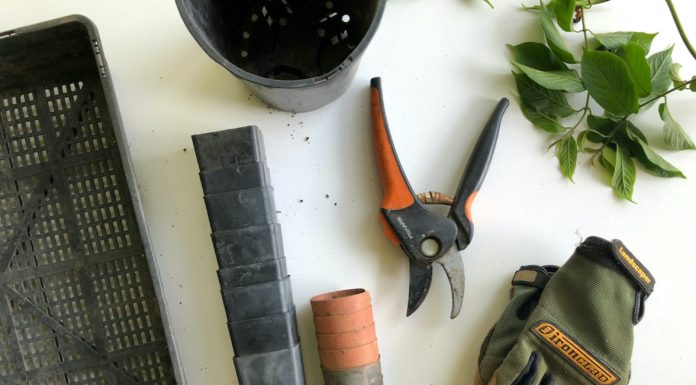When it comes to applying for jobs, your resume is one of the most essential tools you have. It needs to be clear, concise, and easy to read while still conveying all relevant information about your skills and experience.
For many freelancers, this can be a difficult balance to strike. Because they’re often self-employed or have worked in a variety of different roles, their resumes can look disjointed and unfocused.
Additionally, because they don’t have the traditional “work history” section that most people do, they may not know how to best highlight their skills and experience.
In this post, we’ll share tips on how to highlight your soft skills to create an informative and engaging freelancer resume to stand out from the competition.
What are soft skills?
Before we get into the specifics of how to highlight your soft skills on a resume, it’s important to understand what they are. Soft skills are non-technical abilities or traits you possess that can help you succeed in the workplace. They’re often described as “people skills” because they relate to how you interact with others.
Some examples of soft skills include:
- Communication
- Interpersonal skills
- Problem-solving
- Time management
- Organizational skills
- Teamwork
While soft skills aren’t technical, they’re still vital to your success as a freelancer and attracting new clients. Because you’ll often be working independently, you must have strong interpersonal skills to communicate effectively with clients and build relationships. On the other hand, time management and organizational skills will help you keep projects on track and meet deadlines.
Where do soft skills go on a CV?
Your first inclination might be to skip right to the skills section of the CV, but in reality, you’ll need to integrate soft skills into nearly every section of your resume. After all, these are what separates the average performer from the superstar.
1. Summary
If you’re a freelancer with an extensive work history, it’s helpful to begin your resume with a summary section highlighting your most impressive achievements and your goals as a freelancer. Think of this as your “elevator pitch” –– a brief introduction that grabs the reader’s attention and showcases your unique value proposition.
When writing your summary, include any relevant soft skills that will help you stand out from the competition. For example, if you’re a web developer who excels at problem-solving and collaborating with other team members, mention these skills early on.
2. Skills
The skills section of your resume is where you’ll get to state your soft skills. This is the perfect opportunity to highlight any unique abilities that might not immediately appear in your work history. Remember to ensure the skills you write down are directly related to the job you’re applying to.
3. Work History
Your work history is the perfect opportunity to show off your soft skills. When describing each previous job, be sure to include concrete examples of how you’ve used your interpersonal skills to achieve success.
For example, if you’re a freelance writer who’s also an expert at time management, you might mention how you can juggle multiple deadlines without missing a beat.
Or, if you’re a web designer who prides yourself on your team-building skills, be sure to include a story about how you brought together a group of developers to create a successful project, for example.
How to highlight soft skills on a resume
Now that we’ve covered what soft skills are and why they’re important, let’s take a look at how you can highlight them on your resume.
1. Use action words
When describing your skills and experience, it’s important to use active and engaging language. For example, instead of saying, “I have good communication skills,” you could say, “I effectively communicate with clients and team members.”
It not only sounds better, but it also helps to show the reader what you can do rather than just telling them.
2. Give examples
When listing your skills and experience, be sure to back them up with specific examples. For instance, if you’re stating that you have good time management skills, you could talk about how you’ve completed projects despite tight deadlines.
This will help the reader see that you’re not just making claims but that you have the skills and experience to back them up.
3. Use numbers
Try to use hard numbers to quantify your skills and experience. For example, instead of saying, “I worked on a variety of projects,” you could say, “I completed 10+ projects in the last quarter alone.” This type of language is not only more engaging, but it also helps the hiring manager or future client understand the scope of your experience better.
4. Highlight relevant skills
When highlighting your top soft skills on a resume, it’s essential to focus on those most relevant to the role you’re applying for. If you’re applying for a project management role, then interpersonal and communication skills might be more important than time management skills.
By focusing on the skills most relevant to the role, you can show the reader that you have the experience and abilities they’re looking for. Instead of trying to list everything, focus on those skills that will make the most impact and leave out the rest.
Finally, include a strong cover letter that expands on your work experience and motivation while focusing on the job you’re targeting. Make sure you do your diligence and learn how to craft an outstanding cover letter the right way. A cover letter is your chance to include other job-specific skills you couldn’t in your resume and show how you provide value.
Conclusion
Following these tips can help you create a freelancer resume that effectively highlights your soft skills and helps you stand out from the rest. By using active language, giving specific examples, and focusing on results, you can show the reader what you’re capable of and why you’re the best candidate for this specific job.




































